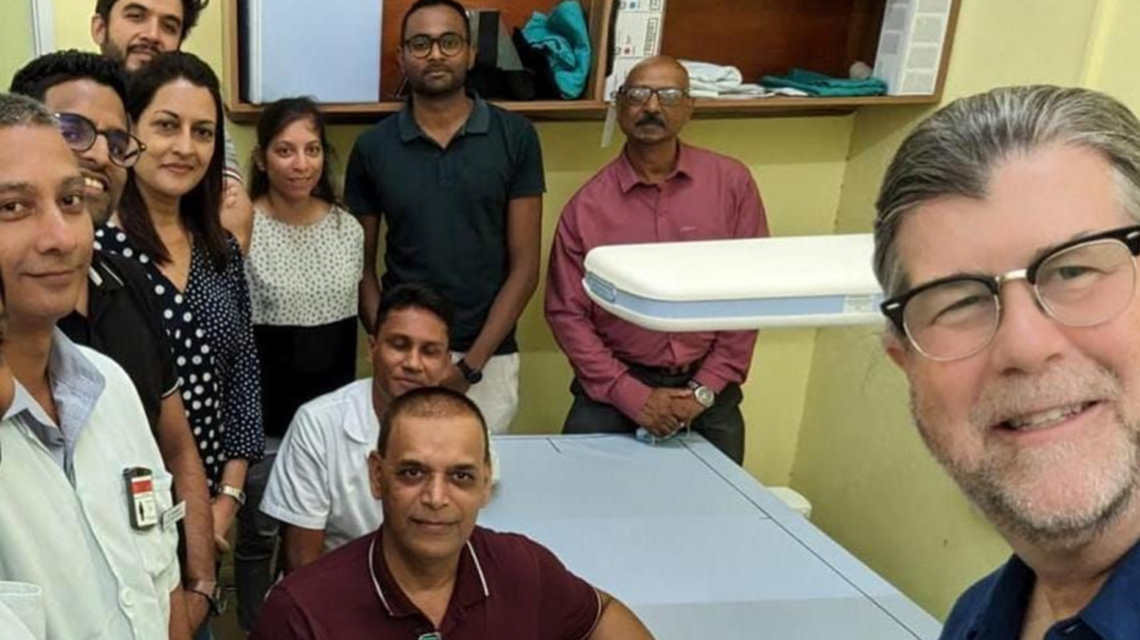For the first time, Mauritius has unique data on the health of its elderly population, a development made possible through IAEA support to the country on leveraging nuclear technology for the early diagnosis and prevention of ageing-associated diseases. As a result, Mauritius policy makers can utilize this information to better inform interventions that keep its elders healthy.
Sarcopenia is an age-related decline in muscle mass and function that affects older populations. The condition is associated with poor health outcomes, such as physical disability and a diminished quality of life but can prevented or at least delayed if detected early. Similarly, osteoporosis is another disease associated with ageing but characterized by weak, fragile and painful bones and affects women more commonly than men, particularly post menopause.
Mauritius faces a growing ageing population, with over 11 per cent of its people over the age 65 in 2018. Sarcopenia and osteoporosis are associated with an increased risk of hospitalization and all-round care placement in the country, with implications for public health expenditures and planning.
“Early intervention and prevention are vital to address sarcopenia and osteoporosis, and nuclear techniques offer a huge advantage as they allow scientists to look at the exact component of body weight that is changing in relation to ageing,” said Cornelia Loechl, IAEA Section Head for Nutritional and Health-Related Environment Studies. “Information generated this way is crucial in designing preventive and treatment interventions to accord the elderly a healthier life,” she added.








